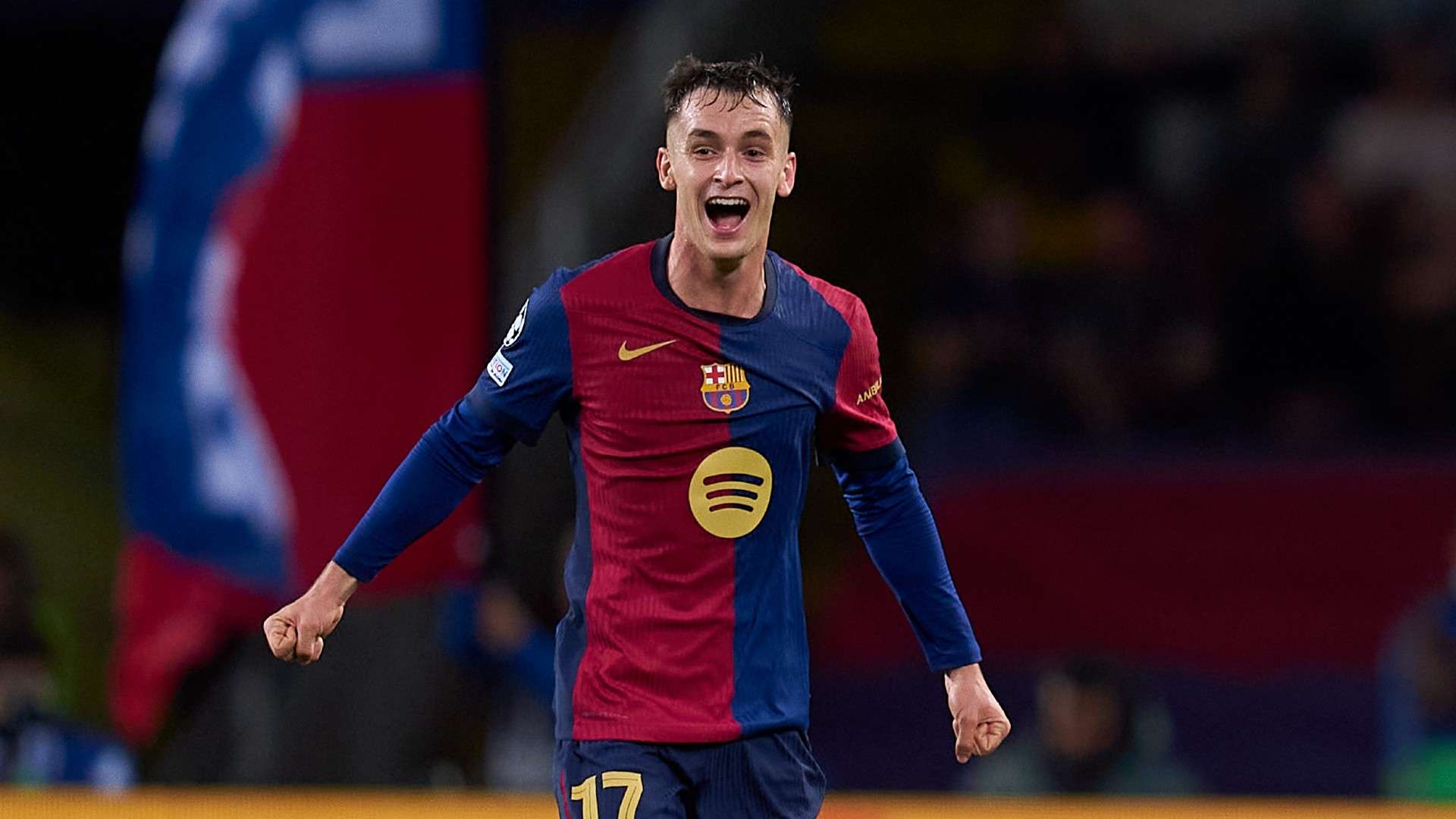Barcelona’s renowned ability to adapt players to new positions could see another tactical transformation as manager Hansi Flick considers converting midfielder Marc Casado into a right-back, following the successful blueprint established by Sergi Roberto. This potential positional shift comes as the Catalan giants navigate through an ongoing defensive crisis while managing financial constraints that prevented defensive reinforcements during the summer transfer window.
The 21-year-old Casado, who has been a revelation in Barcelona’s midfield this season, could find himself following in the versatile footsteps of Sergi Roberto, who successfully transitioned between midfield and defense throughout his career at Camp Nou. Roberto’s adaptability was particularly evident in the 2022-23 season, where he featured in 33 matches across multiple positions, including 19 appearances at right-back, 10 in midfield, and even one game as a left-winger.
However, the proposed position change presents Flick with a fascinating dilemma. Casado’s current form in midfield has been nothing short of exceptional, with the young talent forcing established star Frenkie de Jong to the bench and contributing three assists in LaLiga despite playing in a predominantly defensive midfield role. His performances have been integral to Barcelona’s successful campaign, which sees them sitting atop the LaLiga table with a six-point advantage over rivals Real Madrid.
The tactical consideration stems from Flick’s desire to return Jules Kounde to his natural center-back position. The French defender has been deputizing at right-back for most of the season, but the German coach believes repositioning him could strengthen the team’s central defense while potentially opening up new tactical possibilities with Casado at right-back.
This potential transformation reflects Barcelona’s historical tendency to think creatively when solving positional problems. The club has a rich tradition of successfully converting players to new roles, with Sergi Roberto being perhaps the most prominent recent example. Roberto’s successful adaptation from midfielder to right-back under various managers proved that such transitions can work when executed with proper tactical understanding and player development.
The financial context of this potential move is significant. Barcelona’s well-documented economic challenges prevented them from securing a specialized right-back during the summer transfer window, forcing the technical staff to look for internal solutions. This situation has led to the exploration of versatile options within the current squad, with Casado emerging as a promising candidate for positional conversion.
Flick’s consideration of this move also speaks to his tactical flexibility and willingness to think outside conventional positions. The German coach, known for his innovative approach during his time at Bayern Munich, sees in Casado the technical attributes and tactical intelligence necessary for such a transition. The young midfielder’s ability to read the game, combined with his physical attributes and technical skills, suggests he could potentially adapt to the demands of the full-back position.
Looking ahead to Barcelona’s upcoming fixture against Celta Vigo after the international break, it remains to be seen whether Flick will implement this tactical shift. The team’s current position at the top of LaLiga suggests caution might be warranted in making significant changes to a winning formula. However, the long-term benefits of having another versatile option in the squad could outweigh the short-term risks of tactical experimentation.
The potential repositioning of Casado also raises interesting questions about player development in modern football. As the game continues to evolve, the ability to perform effectively in multiple positions becomes increasingly valuable. Barcelona’s history of successful positional transitions, from Johan Cruyff’s tactical innovations to the more recent example of Sergi Roberto, suggests that such moves can significantly benefit both the player and the team when executed properly.
For Casado himself, this potential new role could represent both a challenge and an opportunity. While his current midfield performances have been impressive, the ability to play effectively in multiple positions could enhance his value to the team and contribute to his long-term development as a footballer.



